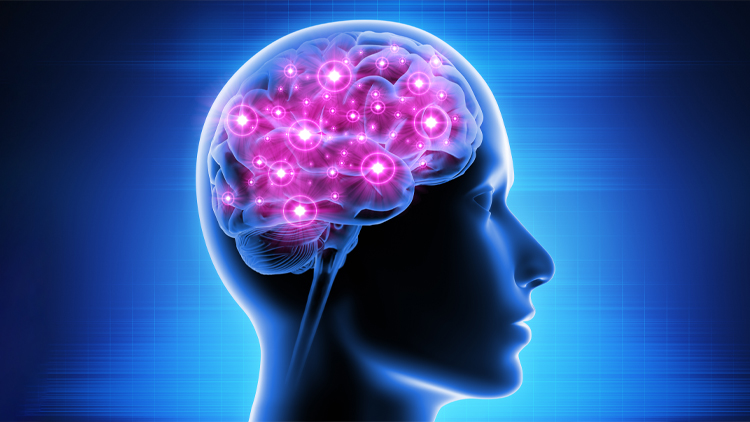With more than 55 million people worldwide now living with dementia, and nearly 10 million new cases occurring every year, finding effective and safe ways to maintain brain health is becoming an increasingly challenging global health problem. Currently approved pharmaceutical drugs for dementia neither cure nor halt cognitive decline; at best they simply delay the worsening cognitive impairment. Taking a different approach, a new review examines the effects of 21 different nutrients and phytonutrients on cognitive function. Promisingly, the researchers found particularly noteworthy benefits to memory, attention, intelligence, vocabulary, creative thinking, reaction time, comprehension, learning, and other critical measures of cognition.
Published in the Journal of Clinical and Translational Research by researchers from the United States, the review examines a total of 96 separate scientific articles. The nutrients and phytonutrients analyzed in these papers include alpha-lipoic acid; B vitamins; cholinergic precursors such as choline, lecithin, and phosphatidylserine; vitamin D; vitamin E; N-acetyl cysteine; omega-3 fatty acids; rosemary; saffron; curcumin; zinc; and others. The researchers conclude that many of these natural substances may be promising for treating cognitive impairment, especially in people afflicted with Alzheimer’s disease. Based on this finding, they advise that healthy adults and patients exhibiting cognitive defects would be best served to consider multiple nutrients and phytonutrients to improve aspects of their cognitive function.
Several of the studies cited in the review are especially impressive. Particularly noteworthy in this regard are trials using vitamin D, rosemary, saffron, and curcumin. Noting that vitamin D insufficiency affects as many as 1 billion people worldwide, for example, the researchers describe how this nutrient has been shown to increase levels of acetylcholine, a key neurotransmitter involved in memory and learning. Pointing out that the vitamin D receptor localized in the brain is involved in complex planning, processing, and forming new memories, the researchers further note that both older mildly demented and non-demented adults who were vitamin D deficient have been shown to be more likely to have mood disorders and perform worse on some assessments of cognitive function.
Illustrating the promising potential of vitamin D to improve cognition, the review cites a study of elderly patients 65 years of age or older with mild cognitive impairment in which the participants received either 400 IU per day of vitamin D3 or a placebo. The study found that full intelligence quotient (IQ), verbal IQ, and performance IQ significantly increased in the patients given vitamin D. A similar study followed Alzheimer’s disease patients aged 65 years or older who were given either 800 IU of vitamin D or a placebo. Here too, compared to the placebo group, the vitamin D group scored significantly higher in several domains of cognitive function, including full-scale IQ and vocabulary.
The researchers also describe how the herb rosemary has long been theorized to stimulate the brain and assist in memory, an idea that is said to date back to ancient Greece. They cite a study in which 28 healthy elderly individuals received either one of 4 different doses of dried rosemary or a placebo. The doses of rosemary given were 750 mg, 1,500 mg, 3,000 mg, or 6,000 mg. Interestingly, while the 750 mg dose was found to produce a significant improvement both in speed of memory and subjective feelings of alertness, higher doses were observed to negatively affect performance. As well as demonstrating that so-called ‘megadoses’ do not necessarily give superior results, the finding provides a useful reminder of the importance of basing supplement dosages on proper scientific research.
Studies using the spice saffron also feature in the review. In one of these studies, 46 patients with mild to moderate Alzheimer’s disease were given either 30 mg of saffron per day or a placebo. At the end of 16 weeks, compared to patients receiving the placebo, the patients taking the saffron showed statistically significant improvements in their cognitive function. The review suggests that, based on what is currently known about saffron, it may be beneficial for Alzheimer’s disease patients
Promising research using curcumin, an extract from turmeric root, is also summarized in the review. In one of the studies cited, 60 healthy adults aged between 65 and 85 years old were given either a preparation containing 80 mg of curcumin or a placebo. Over a period of 4 weeks, patients taking the curcumin were found to have a significant improvement in their working memory. Impressively, benefits were even observed as soon as one hour after treatment: compared to the placebo group, the curcumin group were already by then demonstrating an improved performance in their sustained attention and working memory.
Given the ineffectiveness and side effects of pharmaceutical drugs prescribed for dementia, the studies summarized in this scientific review demonstrate that cognitive decline need not be an inevitable consequence of ageing. With many of these studies conducted as randomized, double-blind, placebo-controlled trials – the so-called scientific ‘gold standard’ for epidemiologic research – it is clear that patients, their families, and physicians already have more treatment options available to them than they may realize.






